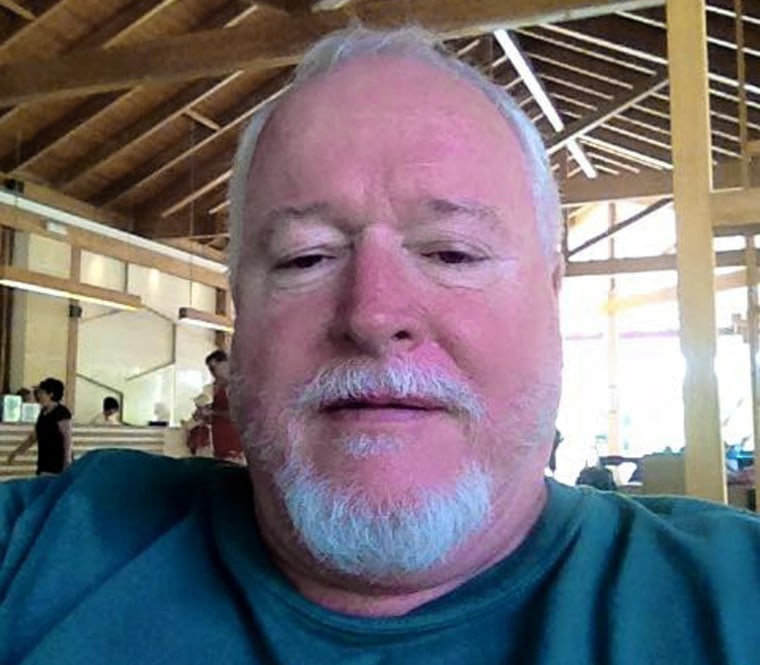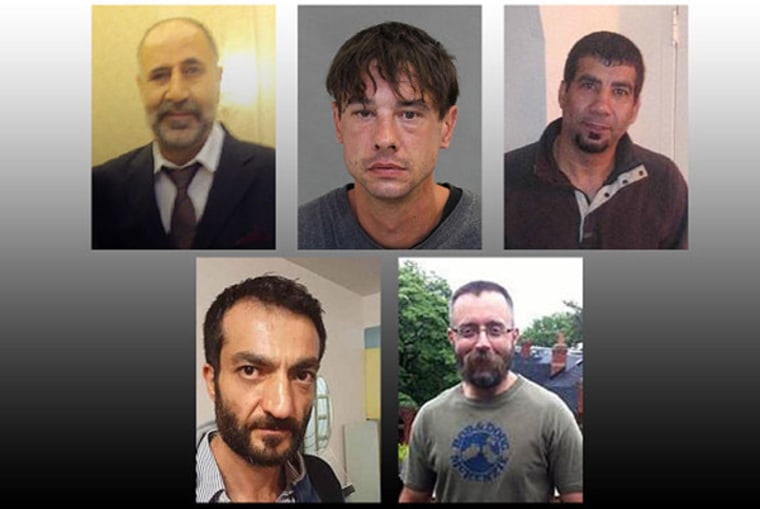Alleged Toronto serial killer Bruce McArthur, who is said to have targeted the local gay community, is now facing a seventh murder charge. Prosecutors said in the courthouse Wednesday that the 66-year-old landscaper has been charged with first-degree murder in the death of Abdulbasir Faizi, a missing man whose relatives thought he had abandoned his wife and children.
McArthur, who was arrested on January 18 and charged with six counts of first-degree murder, appeared by video during Wednesday's session. He spoke only to say his name and acknowledge that he understood the charges against him.

Detective Sgt. Hank Idsinga announced at a press conference later that the remains of three men, Selim Esen, Dean Lisowick and Faizi, have now been identified. McArthur had already been charged with the murders of Esen and Lisowick.
Police have been trying to identify the remains of at least seven men found at a property McArthur used as storage for his landscaping business. They say he targeted men he met through gay dating apps and bars in Toronto's "Gay Village" area, as well as male prostitutes.
Investigators have identified six sets of remains so far — 49-year-old Andrew Kinsman, 50-year-old Soroush Mahmudi, 40-year-old Skandaraj Navaratnam and now 44-year-old Esen, 42-year-old Faizi and 42-year-old Lisowick.

At Wednesday afternoon's press conference, Idsinga said the remains of "at least seven individuals" have already been located within planters on McArthur's storage property, and he stressed there may be more victims among the remains already in possession of the Toronto Police Service.
Idsinga said three different mechanisms have been used to identify the victims through their remains: dental records, finger prints and DNA. The dismembered remains were said to have been recovered in various stages of decomposition, and Idsinga explained forensic doctors in Ontario have been "doing difficult and time-consuming work" to reconstruct the remains and identify the victims.
McArthur is currently thought to have become active in 2010, but police announced Wednesday they are investigating 15 cold-case homicides from 1975 to 1997 that have been linked to Toronto's Gay Village or, as Idsinga described, "the gay lifestyle." The number of cold cases under investigation could increase, Idsinga said.
"We really don't know how deep this is going to go," he said of the cold-case investigation. "I don't want to hazard putting a final number on it. We may discover that 2010 was the first murder. We don't know yet."
Idsinga said 75 properties linked to the McArthur are under investigation. They plan to search them once the weather warms in early May.
A relative of Faizi's, who spoke on condition of anonymity due to a lack of permission from the family to speak publicly, said she is relieved his remains have been found.
"At least there's a sense of relief because he didn't abandon anyone. He didn't run away," she said.
An assistant machine operator at a printing company, Faizi went missing on Dec. 29, 2010. Trying to determine why, his Muslim family accessed his computer and was shocked to discover he had been secretly going to bathhouses in the Gay Village and was on gay dating apps for older and large men.
When they then went to police, officers suggested he had probably just left, the relative said. Faizi's wife divorced him, thinking he abandoned her and their two young daughters.
"She didn't know. He wasn't out. As far as she knows, they were married, and they were happy," she said.
But she said she always knew Faizi, an Afghan who immigrated to Canada from Iran, didn't run away. "It didn't make sense. He didn't take his passport, and he didn't take any money. It didn't make sense that police had this theory that he ran away," she added. "I feel very guilty now, because I didn't do enough."
Police set up a task force in 2012 called Project Houston after Skandaraj Navaratnam, Majeed Kayhan and Faizi went missing. The three were South Asian or Middle Eastern and frequented gay bars in Toronto's Gay Village. McArthur was interviewed by police during that project, but it was closed in 2014. McArthur is now charged with their murders and the murders of four other men.
Faizi's car was later found a short distance from the house McArthur used as storage. Police believe Faizi knew McArthur prior to his death.
When questioned at Wednesday's press conference about the effectiveness of Project Houston, Idsinga said investigators did all they could at the time.
"All I can say is, I was familiar with [Project] Houston. I look back on those occurrences now, and I'm quite content with the job that was done in those days," he told reporters.
Police's handling of the investigation has stirred discord in Toronto's LGBTQ and South Asian communities, with a number of people coming forward to say their concerns had been dismissed or not taken seriously.
In a public statement released in March, the Alliance for South Asian AIDS Prevention (ASAAP), a Toronto-based LGBTQ organization, along with 30 other LGBTQ and community groups, called for an external review of the Toronto Police Service's handling of the missing person investigations.
"The recent cases of missing and allegedly murdered South Asian, Middle Eastern, and LGBTQ+ persons have created a crisis in public trust with the Toronto Police Service," the statement said. "Community pressure for an effective police response into missing person cases, reports of inadequate investigative steps, and a failure to informatively and respectfully communicate lead to one conclusion. A different standard of policing and justice is the reality for racialized and LGBTQ+ persons in our city."
About 20 investigators are working the case full time. Forensics officers have continued to work at McArthur's apartment since his January arrest.
"We've quite frankly never seen anything like it," Idsinga said. "I think it's easily set the record for a forensic examination of an apartment."
McArthur has not entered a plea. Edward Royle, a lawyer for McArthur, has previously declined to comment on the case and didn't immediately respond to messages for comment on Wednesday.
